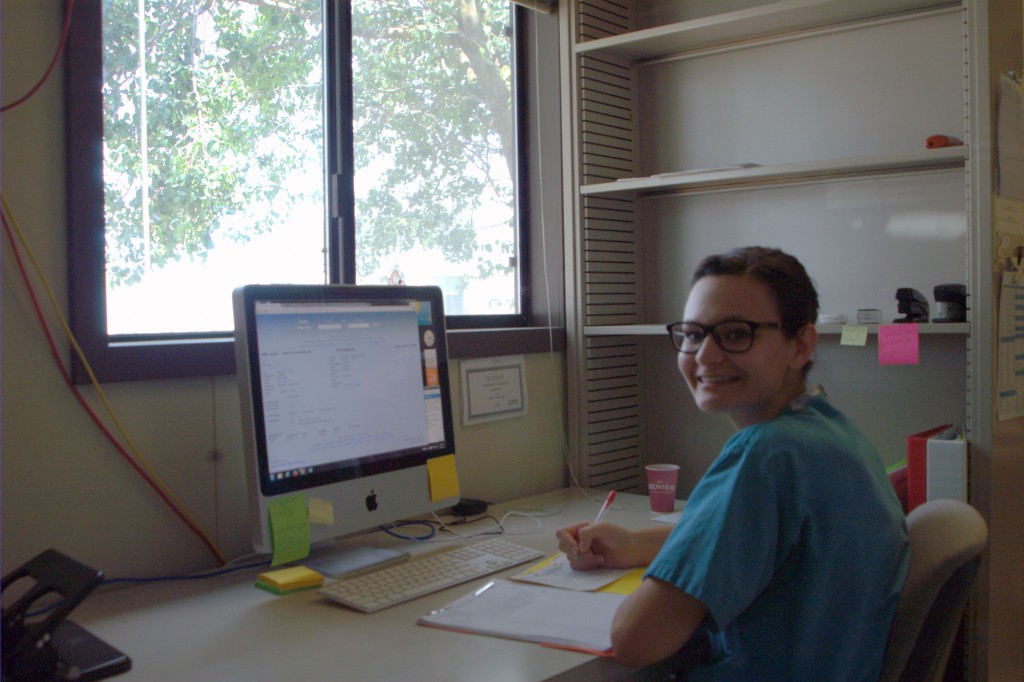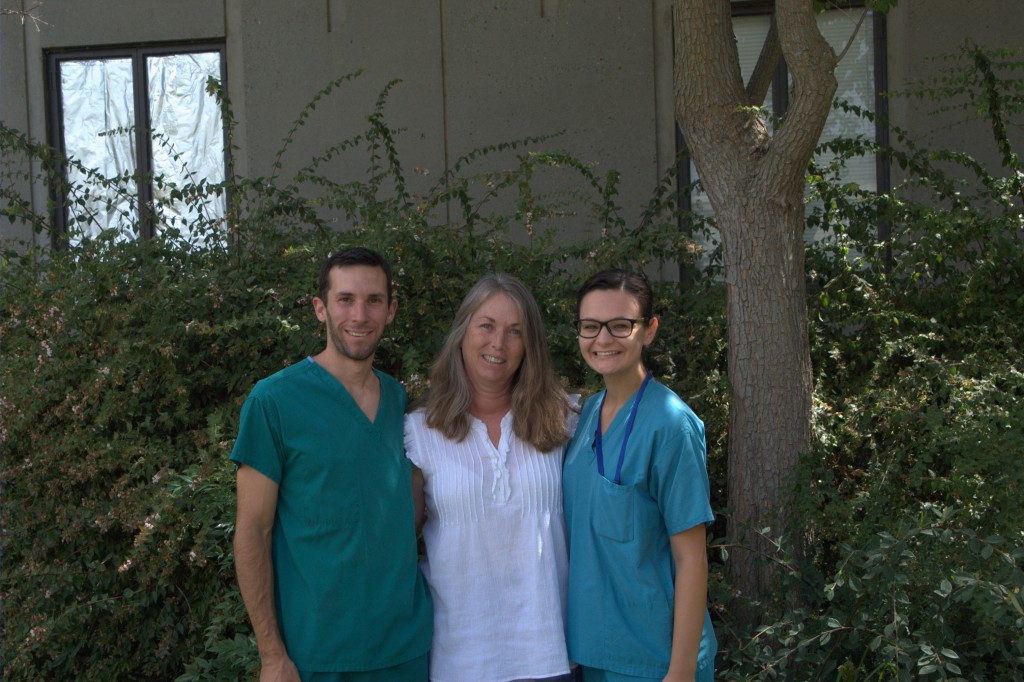Based on my time spent here at Trinity and the number of assignments I have turned in, you would think I had done absolutely nothing since arriving here. The truth is, I have read nearly ten full length books, in addition to poetry and other excerpt readings, but have not had any essays to turn in. For many courses at Trinity, your only assessment is a final paper at the end of the semester. Some courses have final exams as well, but as a visiting student I only need to submit a paper by December 15. During the former part of the semester, this fact made my time feel much more leisurely, as I was just focused on completing the readings assigned to me and, when I could, reading ahead. This made my weekends freer and I could relax, spend time with friends, and even travel! Now, as the end of the semester is looming, I am realizing just how much work I have to do before I leave (similar to how Joey must have felt in this scene).

Because the credit system is different in Ireland and I have to take enough credits to be considered a full time student back at Scripps, I am taking six courses. This means that I have to write six essays by December 15.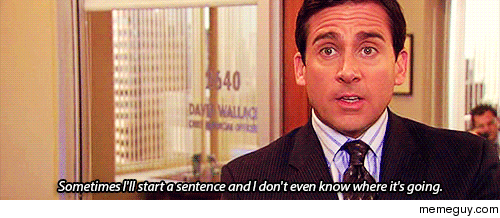
As I mentioned in some of my earlier posts, professors have distributed essay topics and even had assignments where we were required to think about our topics and even write an outline for what we wanted to discuss. I have just had another professor do this and I am very grateful to him for it because it will help give me some extra motivation to get a start on some rather daunting deadlines.
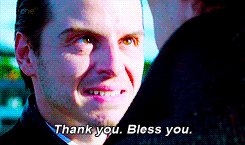
While on the topic of looking towards the future, I have started thinking about what I might want to do during summer 2018. Although it seems far off, applications for internships and lab positions are already being posted, many of which are due early next semester. If only applying was as easy as the gif below suggests. 
Because I am a chemistry major, I will need to do research in a lab that I will later write my thesis on. I have found many programs that offer lab positions for undergraduate students that I am interested in, where the next step is to figure out which ones I will apply to. My list is currently very long, so I will need to narrow it down. I found a position through the National Institute for Health that I am particularly interested in, as it focuses on public health, something that I have been interested in learning more about.

My current worry is whether or not that would produce enough hard data for me to write my thesis on it. If not, I have many other options, and may even end up in Claremont to do my research. This is when I am very grateful that I have the advisor I do, as I know he will be supportive in helping me make a decision that best suits my academic interests and future goals. I am also grateful for the other resources that Scripps provides in helping with these sorts of decisions, such as CP&R, which has helped me with internship applications in the past.
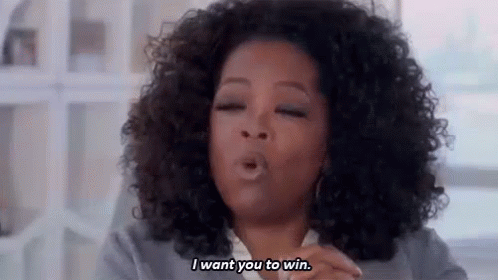
If you are worried about summer plans, please know that you have a kindred spirit in me. If you are feeling lost, please don’t hesitate to contact me or the staff at CP&R. That’s what they’re there for, and they are awesome! Cheers to the final weeks!







 What’s your major? If you’re a sophomore, or even a first year, not only are you likely to hear this questioned, but you also might not know how to answer it. Everyone has to choose a major at some point in their college career. At first, picking a major can be overwhelming because it feels like you are committing yourself to that subject for the rest of your college career. Many people start college intent on majoring in politics and end up changing to history or chemistry, where the major you started with and the one you ended with are often completely unrelated. What I have recently discovered is that even after you declare your major, you can still change it. It is a preconceived notion that once you declare, you cannot change your mind. What I am realizing more and more often, is that there are very few things you can get involved in that will not allow you to change your mind if you decide it’s not for you.
What’s your major? If you’re a sophomore, or even a first year, not only are you likely to hear this questioned, but you also might not know how to answer it. Everyone has to choose a major at some point in their college career. At first, picking a major can be overwhelming because it feels like you are committing yourself to that subject for the rest of your college career. Many people start college intent on majoring in politics and end up changing to history or chemistry, where the major you started with and the one you ended with are often completely unrelated. What I have recently discovered is that even after you declare your major, you can still change it. It is a preconceived notion that once you declare, you cannot change your mind. What I am realizing more and more often, is that there are very few things you can get involved in that will not allow you to change your mind if you decide it’s not for you. I came to Scripps intent on double majoring in biochemistry and English. After taking an extremely challenging course my first semester, entitled Introduction to Biological Chemistry, or IBC for short, I got a glimpse of what science would be like for the remainder of my time at Scripps, and what it would mean for me to, not only be a science major, but pursue another major on top of that. Recently, I have been questioning everything. Should I double major? Should I dual major? Should I just do a major and a minor? Hearing my advisor tell me that I could change my major, even after I declared, was such a relief. Even if it’s not ideal, it’s still possible, and that makes it feel a whole lot less binding. There seems to be a preconceived notion that you can’t change your major, which makes the whole process seem that much more intense and stressful.
I came to Scripps intent on double majoring in biochemistry and English. After taking an extremely challenging course my first semester, entitled Introduction to Biological Chemistry, or IBC for short, I got a glimpse of what science would be like for the remainder of my time at Scripps, and what it would mean for me to, not only be a science major, but pursue another major on top of that. Recently, I have been questioning everything. Should I double major? Should I dual major? Should I just do a major and a minor? Hearing my advisor tell me that I could change my major, even after I declared, was such a relief. Even if it’s not ideal, it’s still possible, and that makes it feel a whole lot less binding. There seems to be a preconceived notion that you can’t change your major, which makes the whole process seem that much more intense and stressful.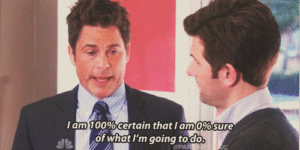 The truth is, it’s okay to not know what you’ll major in, or what you want to do in the future. The beauty of going to a liberal arts college is that you have the opportunity to take classes in so many different disciplines, and at the other colleges, that you can figure out what you like and what you don’t like. In addition, there are so many events and opportunities for internships and other jobs that might open a door to something that you end up falling in love with. On the other hand, if you are set on one specific major or field of study, it is important to keep your options open and be willing to fall in love with something new.
The truth is, it’s okay to not know what you’ll major in, or what you want to do in the future. The beauty of going to a liberal arts college is that you have the opportunity to take classes in so many different disciplines, and at the other colleges, that you can figure out what you like and what you don’t like. In addition, there are so many events and opportunities for internships and other jobs that might open a door to something that you end up falling in love with. On the other hand, if you are set on one specific major or field of study, it is important to keep your options open and be willing to fall in love with something new.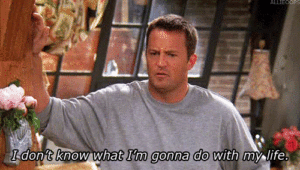
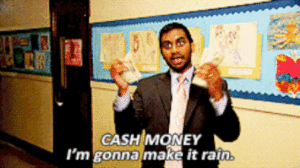
 As in life, experiences in the lab rarely go as planned. Just like the adorable puppy has shown above, you can always be prepared, but I began to notice that even with protocols I had run multiple times, they often didn’t produce the results I expected. At first, this was extremely frustrating and it was hard not to become discouraged, but after talking with my lab mates and with my PI, I knew that it was very normal and a large part of life in the lab. I also found that because many experiments didn’t produce anticipated results, protocols ended up taking much longer than predicted. Similarly, I found this very frustrating, especially when executing an experiment for the first time. Oftentimes, I would only accomplish one or two things on my to-do list that initially had five or six items. What this taught me is that you never know how things are going to pan out, no matter how much you prepare or how experienced you are. The only thing you can control about those sorts of situations is how you react and how you choose to move forward. That was probably the single most important thing I learned and experienced this summer.
As in life, experiences in the lab rarely go as planned. Just like the adorable puppy has shown above, you can always be prepared, but I began to notice that even with protocols I had run multiple times, they often didn’t produce the results I expected. At first, this was extremely frustrating and it was hard not to become discouraged, but after talking with my lab mates and with my PI, I knew that it was very normal and a large part of life in the lab. I also found that because many experiments didn’t produce anticipated results, protocols ended up taking much longer than predicted. Similarly, I found this very frustrating, especially when executing an experiment for the first time. Oftentimes, I would only accomplish one or two things on my to-do list that initially had five or six items. What this taught me is that you never know how things are going to pan out, no matter how much you prepare or how experienced you are. The only thing you can control about those sorts of situations is how you react and how you choose to move forward. That was probably the single most important thing I learned and experienced this summer.